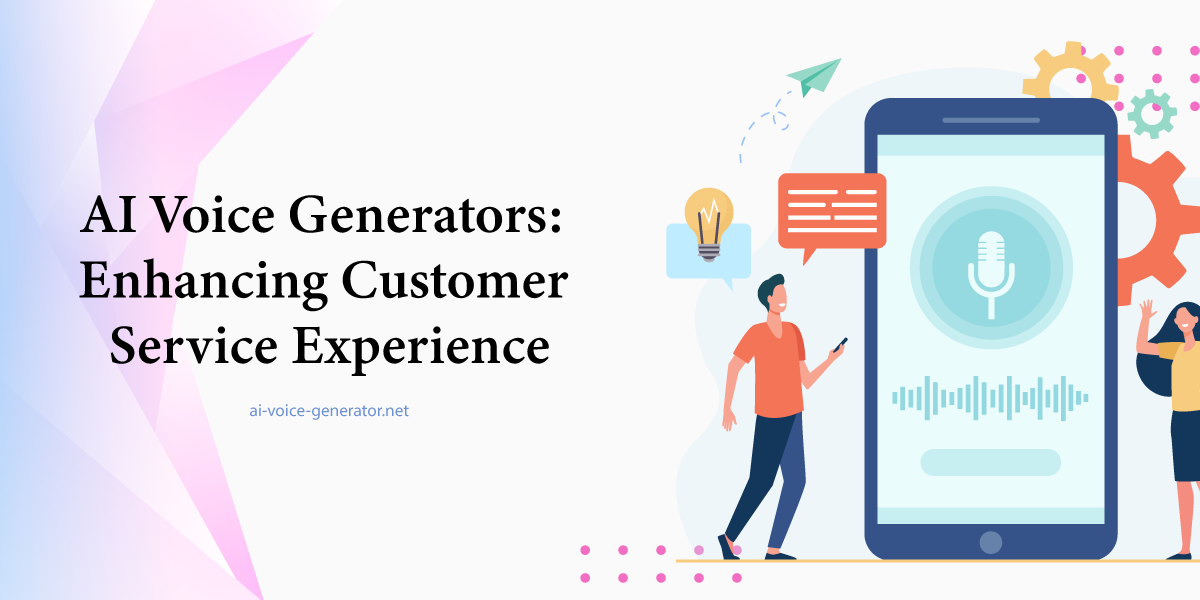
Voice Generator in AI Music: Creating Viral Hits with Sound
The world of music is shifting rapidly, and 2025 stands as a landmark year for digital audio innovation. At the heart of this change is the rise of the Voice Generator, a technology that is enabling anyone—from established artists to bedroom creators—to produce compelling, engaging vocal tracks without stepping into a recording booth.
Once considered a futuristic gimmick, AI Voice Generator tools are now leading the audio evolution. What began as a tech novelty has grown into a dependable medium for music creators. These tools can now synthesize vocals so well that the line between human and artificial performance continues to blur.
In this blog, we’ll explore how AI-driven vocal technology is fueling the latest trends in music production, what it means for the future of artistry, and how tools like the AI Voice Generator are playing a central role in this cultural revolution.
Realistic AI Voices Are Powering the Music of Tomorrow
A growing trend across all genres is the use of realistic AI voices to produce songs that feel organic, emotional, and professionally sung. Artists are no longer constrained by geography, time zones, or vocal limitations. Instead, they can compose, edit, and finalize tracks using intelligent systems that generate studio-quality vocals with natural tone, pitch, and cadence.
Listeners are often unable to distinguish whether the vocal line they’re hearing is synthetic or human-made. This is because the new generation of voice tools relies heavily on deep neural networks trained on real singers. With such systems, it’s now possible to fine-tune breath, vibrato, and even stylistic choices to create highly dynamic audio.
Emotion-Based AI Voice Generator is Changing the Creative Workflow
One of the most groundbreaking advances in AI-generated sound is the development of emotion-based AI voice generator models. These don’t just deliver text in a monotone; they allow users to infuse sadness, happiness, anger, and more into the generated vocal line.
This leap means that a single artist or producer can now render an entire chorus or solo with emotional variety—without needing a live performer. For independent musicians especially, this is a game-changer. They can now experiment with tone and delivery to perfectly match the mood of the track.
Human-Like AI Voice Is Setting a New Standard in Vocal Sound
When comparing early voice generation tools to the latest iterations, the progress is astonishing. Today’s human-like AI voice models offer natural pronunciation, seamless inflection, and rich timbral control, which make them viable not just for demos but for commercial releases.
In 2025, many viral music videos are using AI vocals without any public backlash. Fans often praise the originality of sound, showing that mainstream audiences are beginning to appreciate synthetic vocals as a legitimate art form. The growing acceptance is redefining what’s considered “authentic” in musical expression.
AI Voice for Podcasts and Background Scoring
It’s not only singers and composers who benefit from this wave of voice tech. Many producers are now adopting AI voice for podcasts to create narrative segments or background commentary in audio projects. Whether it’s to announce a segment or provide supplementary content, AI vocals enhance clarity and professionalism.
For music creators, this translates to broader capabilities. They can interlace spoken-word intros, skits, or interludes into their tracks using distinct, generated voices, adding texture and narrative layers to their compositions.
Best AI Voice Generators 2025 Empowering DIY Musicians
With the surge in popularity of virtual singers, many platforms are racing to become the best AI voice generators 2025. Each platform offers a distinct library of vocal profiles, language options, and customization features. The competitive landscape benefits artists, who now have access to better and more affordable tools.
The democratization of voice generation has opened the floodgates for unsigned artists, hobbyists, and small labels to release high-quality tracks. No longer reliant on expensive vocal sessions or freelance singers, users can now build fully vocalized songs on a laptop.
AI Voice in Music Production is No Longer Optional
Producers are no longer asking if they should use AI voice in music production—they’re asking how to use it most effectively. Whether it’s to replace scratch vocals, enhance backing layers, or build a full performance from scratch, AI is being integrated at every level of the production chain.
Genre no longer limits its utility either. From electronic and pop to hip-hop and lo-fi, AI vocals are filling creative gaps and streamlining the production process. More importantly, they allow for spontaneous experimentation that can lead to viral breakthroughs.
Text to Speech (TTS) Adds More Than Just Voice
Though often used interchangeably, Text to Speech / TTS serves a distinct purpose within music workflows. TTS is particularly useful for adding robotic, futuristic, or stylistic vocals to songs that aim for experimental or digital aesthetics.
From DJ tags to intermission voiceovers, TTS is embedded in the DNA of electronic music and digital genres. But in 2025, even mainstream pop artists are starting to incorporate TTS for branding purposes, signaling its growing influence in the broader music ecosystem.
AI Voice Cloning Enables Unlimited Vocal Creativity
A standout feature of today’s tools is AI voice cloning, which allows musicians to replicate a specific vocal identity. This is particularly popular among fans who want to hear their favorite artists “cover” other songs—or for producers who want to craft a consistent vocal presence across an album.
By training AI models on custom datasets, users can clone voices that suit their exact tonal and stylistic needs. This offers enormous flexibility for those working in genres where vocal continuity matters, such as R&B or soul.
AI Voiceover for E-Learning and Music Tutorials
An overlooked but growing niche is the use of AI voiceover for e‑learning/training in music production. Creators and educators are building music courses, DAW tutorials, and software walkthroughs using voiceovers generated by AI.
This streamlines the course development process, allowing instructors to produce content quickly while still maintaining audio quality. It also opens opportunities for global reach, as AI-generated voiceovers can be rendered in multiple languages.
Multilingual AI Voice Generator Broadens Global Reach
With global music streaming platforms exploding in popularity, the demand for content in various languages is at an all-time high. The multilingual AI voice generator is now a crucial tool for international releases, enabling creators to reach new audiences with regionally adapted vocal tracks.
By offering support for dozens of languages and dialects, AI voice tools are becoming central to the localization process. Artists can produce versions of the same song in Spanish, French, Japanese, or Arabic—without hiring multiple vocalists or translators.
AI Voice Dubbing and Voice Swapping in Remixes
In the remix culture that dominates digital music platforms, AI voice dubbing / voice swapping is catching fire. Producers are taking classic tracks and swapping original vocals with AI-rendered alternatives to create new versions, reinterpretations, or satirical edits.
This form of musical reinvention is thriving on platforms like SoundCloud and TikTok, where the unexpected nature of AI-driven remixes often leads to viral moments. It’s a powerful demonstration of how AI can breathe new life into legacy audio content.
AI Voice With Emotion Control Adds Depth to Every Note
One of the most exciting capabilities available today is AI voice with emotion control. This function allows producers to adjust emotional intensity in specific phrases or words, mimicking the subtle nuances of human singers.
Rather than producing a flat output, the AI responds to directional prompts, enhancing the artistic value of each track. For emotional ballads or intense choruses, this offers a level of control that even seasoned vocalists might struggle to deliver consistently.
Discover the Tool Behind the Sound Revolution
As AI music technology continues to evolve, finding the right tool can be the key to standing out. One of the most versatile platforms available for these applications is the AI Voice Generator featured at AI Voice Generator. Whether you’re composing original tracks, remixing existing content, or experimenting with global releases, this tool can be the engine of your creative output.
FAQs
A voice generator creates synthetic vocals, allowing artists to produce songs without using human singers.
Yes, with voice cloning, AI can replicate specific vocal tones—sometimes even mimicking well-known singers.
TTS typically reads text in a robotic voice, while AI voice generators produce more natural, emotional vocals.
They allow artists to release songs in multiple languages without needing multiple vocalists or studios.
Absolutely. AI voices are commonly used in narration, intros, and educational music content.

